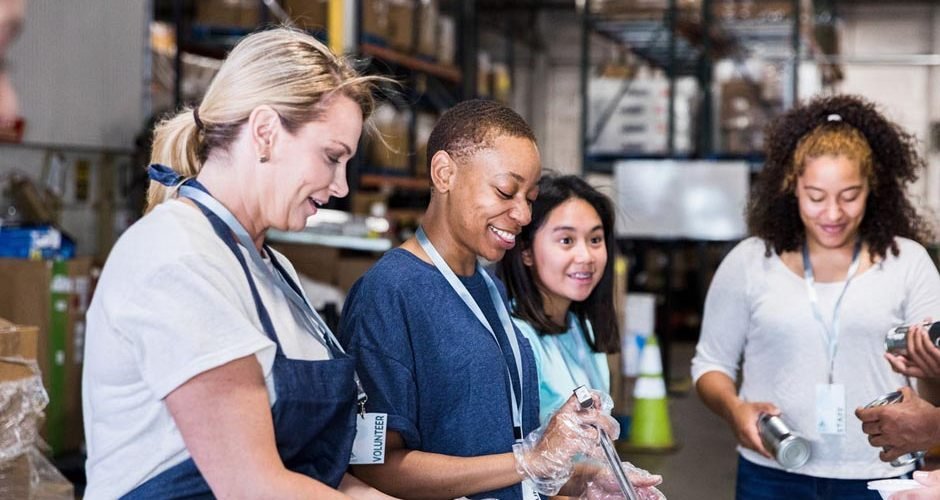In business, financial gains and professional achievements often measure success. It’s easy to overlook the importance of giving back to the community. However, many entrepreneurs are finding ways to balance their drive for professional development with a commitment to philanthropy. Damiano Dipopolo shares the significance of balancing philanthropy and professional development and how entrepreneurs can achieve this balance effectively.
Table of Contents
Why Balancing Philanthropy And Professional Development Is Important
Philanthropy, or giving back to the community through charitable donations or volunteering, is not just about altruism. It also plays a crucial role in professional development. Here’s why:
Building A Positive Reputation
Engaging in philanthropic activities helps entrepreneurs build a positive reputation in the community. This can enhance their brand image and attract more customers, investors, and talented employees.
Personal Growth
Giving back can lead to personal growth by fostering empathy, compassion, and a sense of purpose. These qualities can positively impact an entrepreneur’s leadership skills and decision-making abilities.
Networking Opportunities
Philanthropic events and initiatives provide valuable networking opportunities. Entrepreneurs can expand their professional network and discover new business opportunities by interacting with like-minded individuals and organizations.
Employee Engagement
Supporting philanthropic causes can boost employee morale and engagement. Employees who feel proud of their company’s charitable efforts are more likely to be loyal and motivated, increasing productivity and retention rates.
Long-Term Sustainability
Businesses that prioritize philanthropy are often more sustainable in the long run. Entrepreneurs can create a positive impact beyond their immediate business goals by investing in the community’s well-being.
Tips For Balancing Philanthropy And Professional Development
Set Clear Goals
Clearly define the goals of your philanthropic efforts. Are you aiming to support a particular cause, address a community need, or enhance your company’s social responsibility? Setting specific, measurable, achievable, relevant, and time-bound (SMART) goals can help guide your actions and measure your impact.
Ensure that your philanthropic goals align with your professional development objectives. For example, if you want to improve your leadership skills, consider volunteering for a leadership role in a charitable organization. This alignment can create synergies between your personal growth and community impact.
Allocate Time Wisely
Dedicate specific hours each week or month to volunteering for charitable activities. This could involve serving meals at a soup kitchen, participating in a charity run, or tutoring students in need. You can ensure consistent and meaningful contributions by prioritizing philanthropy in your schedule.
Leverage your professional skills and expertise to make a difference. For instance, if you’re a marketing expert, offer your services to help a nonprofit organization with its marketing campaigns. This approach allows you to contribute effectively while honing your skills.
Collaborate With Others
Collaborate with nonprofit organizations that align with your values and goals. Working together can amplify your impact and reach a broader audience. Look for opportunities to co-host events, launch joint campaigns, or share resources to maximize your philanthropic efforts.
Join business networks or associations that promote philanthropy and social responsibility. These networks provide a platform to connect with like-minded entrepreneurs and explore collaborative projects that benefit the community.
Integrate Philanthropy Into Your Business Model
Incorporate philanthropy into your business strategy through CSR initiatives. This could include donating a percentage of your profits to charity, organizing employee volunteer programs, or implementing environmentally sustainable practices. Integrating philanthropy into your business model can create a positive impact while strengthening your brand reputation.
Encourage your employees to participate in philanthropic activities. Offer paid volunteer days, organize team-building events that support charitable causes, or match employee donations to nonprofit organizations. Engaging employees in philanthropy can boost morale, improve retention rates, and enhance your company’s reputation as a socially responsible employer.
Seek Feedback And Adapt
Regularly seek feedback from stakeholders, including employees, customers, and community members, to assess the effectiveness of your philanthropic efforts. Conduct surveys, hold focus groups, or organize feedback sessions to gather insights and suggestions for improvement.
Based on feedback, be willing to adapt your philanthropic strategy. This could involve changing the focus of your charitable activities, reallocating resources to more impactful projects, or revising your goals to better align with community needs. By continuously evaluating and adapting your approach, you can ensure that your philanthropic efforts remain relevant and impactful.
Conclusion
Balancing philanthropy and professional development is not just about giving back; it’s about creating a sustainable and fulfilling business model that benefits both the entrepreneur and the community. Damiano Dipopolo believes that by integrating philanthropic activities into their professional lives, entrepreneurs can make a positive impact while achieving their business goals. Through volunteering, fundraising, or strategic partnerships, entrepreneurs can find innovative ways to give back and grow professionally.





